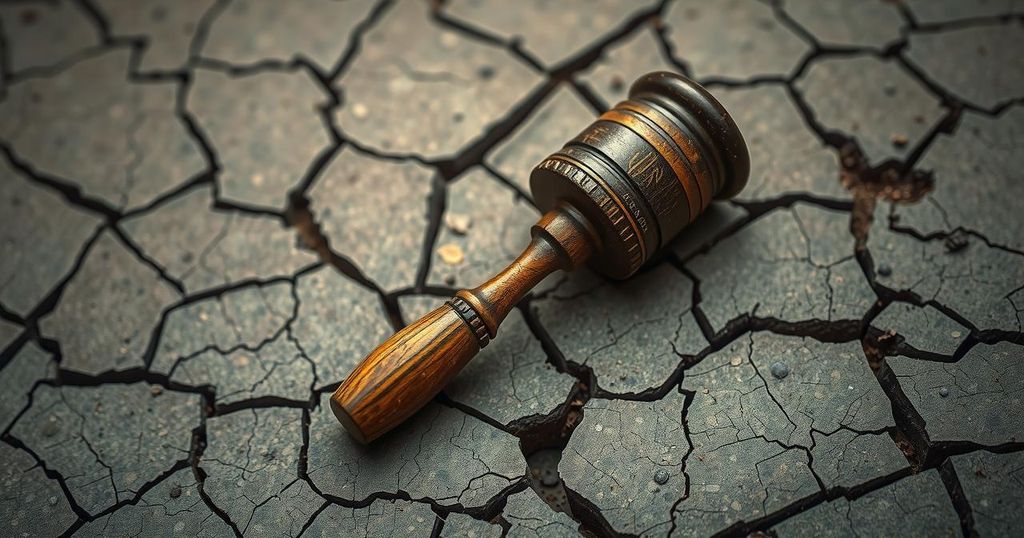Moroccan Activist Sentenced to Prison for Protesting Government’s Earthquake Response

Said Ait Mahdi, a Moroccan activist protesting the government’s earthquake response, was sentenced to three months in prison, which has been condemned as politically motivated. The September 2023 earthquake resulted in massive destruction and fatalities, leading to public discontent over the recovery efforts. Ait Mahdi’s case highlights the struggles for accountability and justice in the region.
A prominent Moroccan activist, Said Ait Mahdi, received a three-month prison sentence due to his involvement in protests that criticized the government’s response to an earthquake. Civil liberties advocates decried the ruling, asserting it was politically motivated and arbitrary. Ait Mahdi’s lawyer indicated that the charges included defamation, assault, and inciting public unrest.
The devastating 6.8-magnitude earthquake that struck the Al Haouz region in September 2023 resulted in nearly 3,000 fatalities and significant infrastructural damage, rendering roads impassable and destroying homes, schools, and health centers. Local dissatisfaction grew as recovery efforts appeared inadequate, with many displaced individuals still residing in temporary shelters.
Ait Mahdi was the first activist from the afflicted area to be sentenced. Protests have occurred sporadically, with locals accusing officials of mishandling recovery initiatives. Defendants with comparable charges usually face longer sentences, but Ait Mahdi’s shorter sentence was a point of relief for his attorney, Isaac Charia.
The Moroccan Association for Human Rights characterized the arrest as retaliation against the activist’s commitment to better the conditions in quake-impacted areas. A coalition of NGOs and political groups criticized the charges, identifying them as attempts to obscure the government’s significant failures following the disaster.
The earthquake highlighted existing disparities in Morocco, impacting predominantly indigenous communities lacking adequate infrastructure. It damaged over 60,000 residences and school facilities, prompting the government to pledge substantial funding for the recovery process. Activist groups have continued to organize demonstrations in various cities, emphasizing the slow progress of reconstruction efforts 16 months post-disaster.
The situation in Morocco following the September 2023 earthquake has revealed significant societal and governmental challenges. Ait Mahdi emerged as a vocal critic of the contentious response from officials aimed at addressing the widespread destruction caused by the disaster. His activism represents broader frustrations within a community already marginalized by persistent economic and infrastructural neglect. The protests serve as a means for affected citizens to demand accountability and faster recovery efforts amidst a backdrop of institutional failure.
Said Ait Mahdi’s sentencing has drawn widespread condemnation from human rights activists, indicating alarming trends regarding civil liberties in Morocco. The case exemplifies the struggles of local communities in the aftermath of a devastating earthquake, which exacerbated long-standing inequities. Activists continue to rally for justice and accountability while calling for an acceleration of recovery efforts to aid those affected by the disaster.
Original Source: abcnews.go.com






